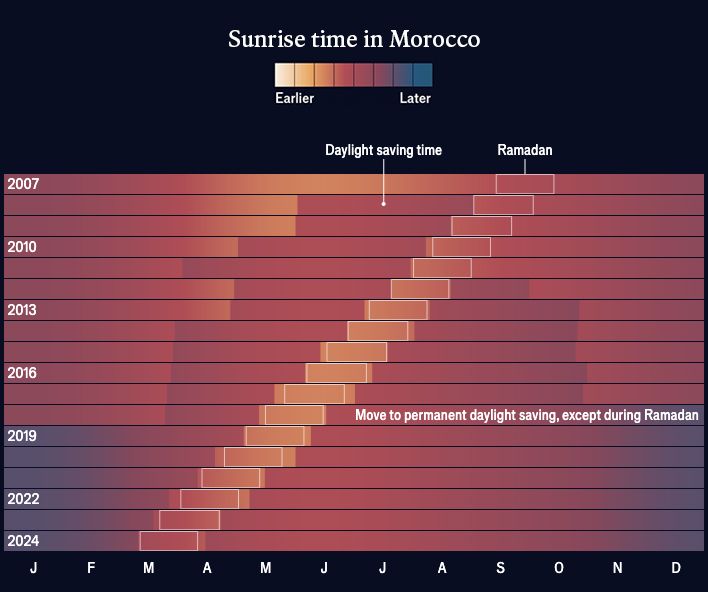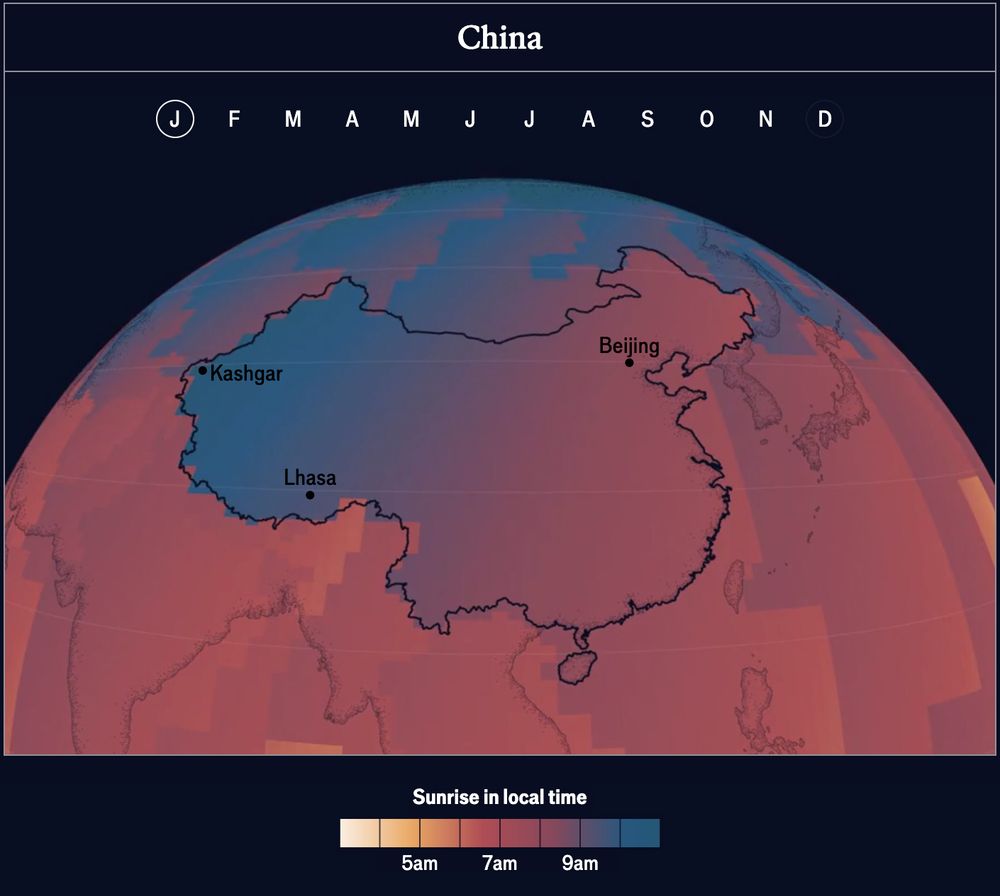thank you Martin!
13.05.2025 09:27 — 👍 1 🔁 0 💬 0 📌 0thank you Martin!
13.05.2025 09:27 — 👍 1 🔁 0 💬 0 📌 0
Some #design notes:
This map uses a more unusual projection, the Nicolosi globular projection, and a stipple effect around the coastline—both demonstrated in code by @torbenjansen.bsky.social Thanks Torben!
Try them yourself:
🌐 observablehq.com/@toja/nicolo...
✨ observablehq.com/@toja/pen-an...

I wrote about the politics of time zones www.economist.com/interactive/...
12.05.2025 13:35 — 👍 2 🔁 0 💬 0 📌 0Morocco isn’t the only country to shift clocks around Ramadan. But last-minute DST changes can cause trouble. Lebanon’s late decision to delay the start of DST for Ramadan in 2023 led to chaos, with the country split on what time to follow. Even Google and Apple were displaying different times.
12.05.2025 13:35 — 👍 2 🔁 0 💬 1 📌 0
A heatmap titled "Sunrise time in Morocco" shows the shift in sunrise times from 2007 to 2024 across each month (January to December). Colours range from light (earlier sunrise) to dark blue (later sunrise). Each row represents a different year, with daylight saving time and Ramadan periods marked. From 2008 onwards, daylight saving is observed in morocco, but it's start and end dates move to avoid Ramadan. In 2018, Morocco moves to permanent daylight saving, except during Ramadan.
In Morocco the interplay between Ramadan, which moves with the lunar calendar, and daylight saving left the government changing clocks up to 4 times a year. Shifting daylight saving to avoid Ramadan helps Muslims observing the holy month, so they don’t have to delay breaking their fast.
12.05.2025 13:35 — 👍 2 🔁 2 💬 1 📌 0
I wrote about how governments set their clocks not just to follow the sun, but also to assert identity, create unity, and distance themselves from rivals www.economist.com/interactive/...
12.05.2025 13:24 — 👍 7 🔁 2 💬 0 📌 0
Globe map centred on China showing the hour of sunrise in local time in January. The colour gradient stretches from blue (corresponding to a late sunrise, ~10am) in western China, to red (corresponding to an earlier sunrise, ~7am) in Eastern China.
But far from extreme latitudes, some places still shade blue. In far-western China, the sun doesn't rise until after 10am in early Jan. These are places where the clock runs far behind solar time—a place's natural time, where the clock would show noon when the sun is at its zenith.
12.05.2025 13:24 — 👍 8 🔁 1 💬 1 📌 0That pale disc bouncing between the poles is polar day, where the sun never sets. The shadow sweeping in and out at the opposite pole is polar night, where the sun never rises. The Arctic Circle is defined by this phenomenon. It is the area where the sun won’t rise for at least 1 day a year.
12.05.2025 13:24 — 👍 5 🔁 2 💬 1 📌 0This map shows the hour of sunrise globally through the year. It reveals time zones following national and, sometimes, regional boundaries, and slicing through the oceans.
12.05.2025 13:24 — 👍 41 🔁 13 💬 3 📌 2